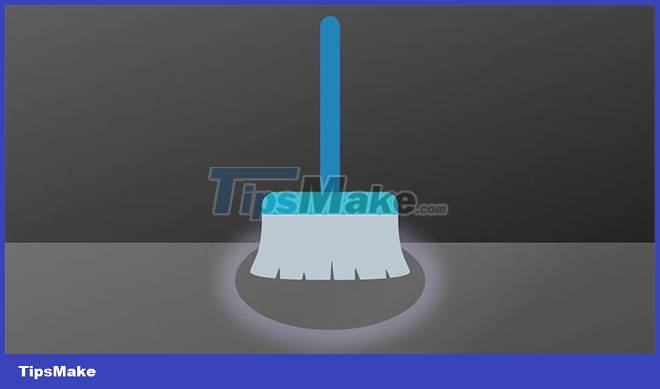Is it better to clean, isolate or delete viruses in malicious files?
Of course, there are ways to deal with malware and protect yourself, but what is the best way when your antivirus detects a malicious file? Would it be better to clean, isolate or delete the virus in that file?
Is it possible to clean the virus?

If the antivirus you're using is a good one, it should have real-time protection, a feature that prevents malware from being installed on your device.
For example, thanks to real-time protection, a good antivirus will prevent potentially malicious file downloads and thus save you the trouble of dealing with viruses. However, the virus can get out of sight. For example, some software will not be able to detect the malware hidden under many layers of ZIP files, especially if not updated regularly.
Imagine a situation where your anti-virus software doesn't prevent the download because it found no problem with the file, but when you unzip the file that appears to be a legitimate ZIP file, your computer you start acting unusually; showing unwanted pop-ups, pushing strange messages, displaying error messages, running slow, overheating - or other signs that your device has a virus. The first thing you need to do in these cases is to launch and update your anti-virus program, then let it scan your entire computer. Once done, the software will most likely show you the option to "clean" the virus.
There is no harm in letting anti-virus software clean up infected files. In rare cases, the anti-virus product will successfully clean the infected file. This is obviously useful if you need to keep the infected file, but if the file in question is a Trojan virus or worm, there's no point in cleaning it, as the entire file is malicious.
What does virus isolation mean?

Your antivirus product may also offer to quarantine the infected file or do so on its own. But what exactly does virus quarantine mean, and when should you do it? More importantly, how does virus isolation help protect your device?
Think back to a time during the pandemic: When people were infected with COVID-19, they were asked to isolate themselves or isolate themselves, so as not to infect others. So do computer viruses. Virus quarantine means isolating a malicious file in a specific, safe area of your device so that the infection doesn't spread to other files on it.
When antivirus software quarantines a file, other programs cannot access that file. So while the virus may not be spreading on your device, quarantining the infected file will not clean the virus. However, it is possible to isolate and then clean the file. This option is especially useful when an important file is infected - for example, work documents or system files that your device needs to run properly.
Also, there's always the possibility that your antivirus product misidentifies a perfectly legitimate program as a virus, so quarantining rather than completely removing it is sometimes more appropriate.
Now, you may be wondering if it is possible to keep a file in quarantine indefinitely. Technically yes, but deleting a suspicious file is always better than keeping it on your device.
How to remove and delete a computer virus?

Delete is the last option, but probably the safest. To be clear, removing a virus is not as simple as deleting a file you suspect contains malware. Malware is complex and can spread to different parts of the operating system, leaving traces everywhere. If you just delete the suspicious file, the malware will probably keep reinstalling itself and cause damage to your device.
This is not to say that it is not possible to remove computer viruses manually - they can, but this is a very complex process that requires a lot of time and effort. And at least, unless you're an IT professional or a particularly capable computer geek, you probably won't be able to do it correctly. Of course, this is where antivirus products come in.
Once malware is detected, your antivirus will automatically attempt to remove it, or at least push a notification letting you know you've been infected. As stated above, you can scan your device and then quarantine suspicious files before taking further action. However, in the end, you will most likely have to delete the problematic files.
For example, let's say you downloaded what you think is a legitimate file from a file-sharing website and your anti-virus software can't identify it as malware; but when you run it, it deployed a Trojan horse. In this case, you will scan with your anti-virus software, which will then isolate and remove the malware.
In some situations, Trojan horse will cause great damage to your system. In other situations, the infection will result in loss of access to important documents. But in most cases, antivirus software will do what it's designed to do: Remove viruses and protect you from cybercriminals.
If the virus is particularly stubborn and your anti-virus software is having a hard time removing it, start your computer in Safe Mode and continue from there. If all else fails, you can either run System Restore (a Windows feature that allows you to revert your PC to an earlier point in time) or perform a complete reset of Windows.
Pretty much the same thing applies to mobile devices, especially Android phones. Sometimes the only thing you can do is do a factory reset and hope the malware doesn't cause irreparable damage. Remember that you will lose all data if you do this, if the data is not backed up somewhere, so this is the last resort.
Responding to a malware attack
Going back to the original question, is it better to clean, isolate or delete the virus? There is no simple answer to this problem. It depends on the situation and the type of malware you are dealing with. In any case, to protect your device and data, you should explore all 3 options and if nothing works, ask for professional help.
All of this emphasizes the importance of having reliable antivirus software installed on all your devices. Luckily, you don't even need to spend money to protect yourself. In fact, there are tons of free options to choose from.